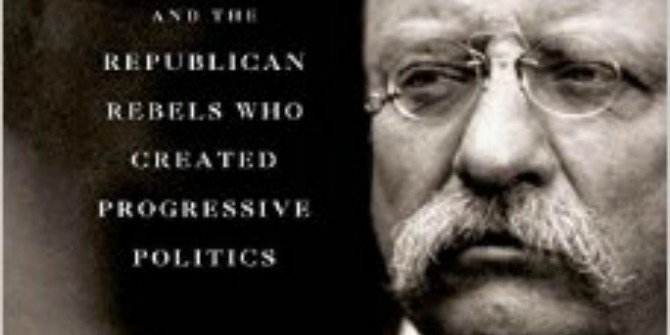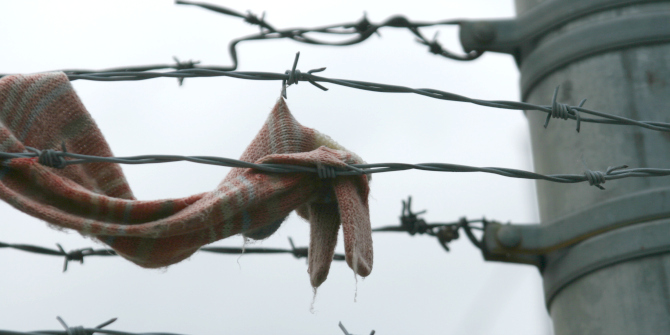 Abortion and reproductive rights have been high on the policy agenda recently, with Nadine Dorries’ attempt to reform abortion laws and counselling services. Ashley Mog reviews a book charting the life of an early abortion rights campaigner.
Abortion and reproductive rights have been high on the policy agenda recently, with Nadine Dorries’ attempt to reform abortion laws and counselling services. Ashley Mog reviews a book charting the life of an early abortion rights campaigner.
The Life and Times of Stella Browne: Feminist and Free Spirit. Lesley Hall. IB Tauris. January 2011.
![]() Listen to author Lesley Hall talk about Stella Browne on the latest LSE Review of Books podcast.
Listen to author Lesley Hall talk about Stella Browne on the latest LSE Review of Books podcast.
In her 2011 book, Lesley Hall charts the life of the “feminist and free spirit” Stella Browne: an early twentieth century radical feminist and abortion rights campaigner. Hall first encountered Browne when researching the Abortion Law Reform Association, looking through archives and collections at the British Library and elsewhere. But to piece together the story of Stella, Hall uses material from including pamphlets, letters, first hand accounts, and other writings, drawn from libraries and collections from across Europe, North America, and Australia. As someone who has written extensively on the history of women’s sexuality, specifically in Britain, Hall is certainly well placed to present this work, and weaves the story a woman’s life who was heavily involved in abortion and birth control reform.
 The book is divided into eleven separate essays, each covering a period of Browne’s life. The chapters range from her birth as a British national in Canada, through her Communist associations and activist endeavours, through to her death and the legacy she left behind. Browne was a woman who lived a life considered “extreme” by the standards of her time. She did not marry and took several lovers in her life. She spoke openly about women’s sexuality (including female masturbation, a taboo then and sometimes now!) as well as the need for birth control and abortion as part of women’s health. She cared deeply about “the primacy of female sexual fulfilment” (pp. 272) at a time when the rhetoric around birth control was firmly situated in eugenics. Although we can now look back at her stances and passion for her causes to call them admirable, she was not admired in her time by many. It was said of Browne that she was “a very difficult type and moderately mad” (pp. 204)!
The book is divided into eleven separate essays, each covering a period of Browne’s life. The chapters range from her birth as a British national in Canada, through her Communist associations and activist endeavours, through to her death and the legacy she left behind. Browne was a woman who lived a life considered “extreme” by the standards of her time. She did not marry and took several lovers in her life. She spoke openly about women’s sexuality (including female masturbation, a taboo then and sometimes now!) as well as the need for birth control and abortion as part of women’s health. She cared deeply about “the primacy of female sexual fulfilment” (pp. 272) at a time when the rhetoric around birth control was firmly situated in eugenics. Although we can now look back at her stances and passion for her causes to call them admirable, she was not admired in her time by many. It was said of Browne that she was “a very difficult type and moderately mad” (pp. 204)!
Some of the information Hall provides is merely pieced together, which does not exactly lead to a seamless story at face value. She herself admits that it took her years to accumulate enough material for a biography because of Browne’s “extremely scattered legacy” (vii). However, she stays honest throughout about what she doesn’t know, what she does not understand, and what her opinions are as she is telling the story. She is a biographer full of admiration for her subject, which as a reader, I found transferred to me.
Many readers may find the book to be reminiscent of some feminist blogs today – both personal and political, easy to read and easy to find yourself in the narrative. The writing style of the book is relaxed but full of information, and so is a good starting point for students and young historians. But whatever the style, the story remains important – Stella was a women who helped to create and change the landscape of women’s lives and sexuality today.
Another reason that this book is refreshing because there are not many biographies of the lives of women like Stella. Most of the books we see in the biography sections of bookstores and libraries about people from the early twentieth century are about men. Women’s lives and actions have not been documented as thoroughly, lovingly, and painstakingly through history, but this book is a step in the right direction to start to piece together histories of women, especially women who blazed a trail that still affects our lives in Britain today.
Ashley Mog studied MSc Gender at the LSE Gender Institute and now works as a research analyst. Read more reviews by Ashley.







